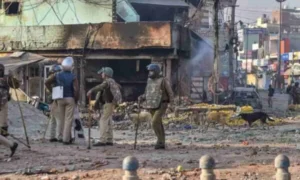
By Inderjit Badhwar
When global politics burns, it’s usually oil that fuels the fire. This week’s cover story, Oil, Power, and Pressure: How Trump’s New Sanctions Are Testing India’s Energy Nerves, explores how the Donald Trump administration’s new sanctions on Rosneft and Lukoil have redrawn the fault lines of global energy—and placed India squarely on them.
For decades, India’s foreign policy has been anchored in strategic autonomy—the belief that national interest, not alignment, should guide our global choices. But autonomy looks very different when energy pipelines become political weapons and every tanker becomes a test of allegiance.
The US sanctions are not just about punishing Moscow; they’re about reordering influence in the global oil ecosystem. By targeting Russia’s biggest oil companies, Washington aims to starve the Kremlin of war revenue —but it also seeks to discipline nations that have benefitted from discounted Russian barrels. India, which prudently leveraged those discounts to control inflation and secure affordable energy, now finds itself accused of indirectly funding Russia’s war machine.
This moment is a reckoning. India cannot afford to alienate either power. Moscow remains a defence ally and a reliable supplier; Washington is an indispensable technology and trade partner. Navigating between them is not weakness—it is diplomacy at its most sophisticated.
Our reporting reveals that India’s dependence on Russian crude is deep, but not irreversible. Replacing it with US and Middle Eastern oil will raise costs—but not break the economy. What it will test is administrative agility and strategic foresight. The bigger challenge is bureaucratic: ensuring compliance with sanctions without paralysing trade, and keeping banks and refiners aligned amid global uncertainty.
Beyond economics, this story is about identity. How India responds will define its place in the emerging order. Will it remain a swing power—flexible, pragmatic, and sovereign in its choices—or will it tilt too visibly towards one camp? The world is watching, not just for what India buys, but what it believes.
There’s also a deeper question of resilience. The Russia sanctions may be an immediate crisis, but they underscore a long-term imperative: energy diversification. For India to truly achieve autonomy, it must reduce its dependence on imported crude, accelerate renewables, and build domestic capacity. Strategic independence begins not in foreign ministries, but in refineries and research labs.
In the end, this isn’t a story about oil—it is about power, both geopolitical and moral. The ability to balance principle with pragmatism, and sovereignty with interdependence, defines a mature state. As India steps into this balancing act, it must remember that flexibility is not compromise—it is the currency of survival in a fragmented world.
If there’s a silver lining, it’s this: crises often accelerate reform. Trump’s sanctions may have cornered India momentarily, but they could also propel it towards a cleaner, more self-reliant, and globally respected energy future.
That’s the real story beneath the barrels—not how India buys its oil, but how it builds its independence.
📰 Crime Today News is proudly sponsored by DRYFRUIT & CO – A Brand by eFabby Global LLC
Design & Developed by Yes Mom Hosting






